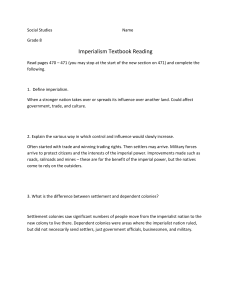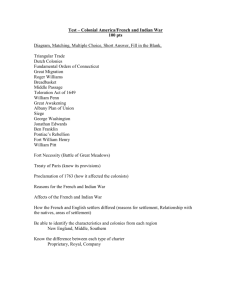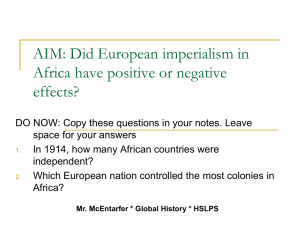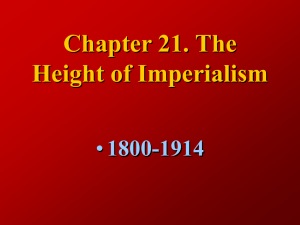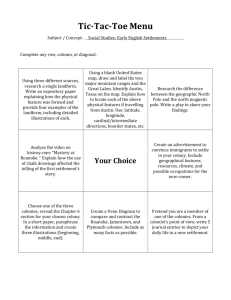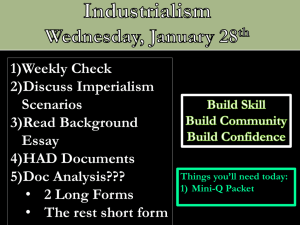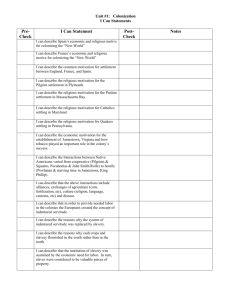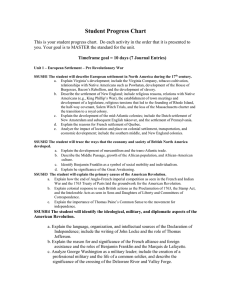Different Types of Colonies
advertisement
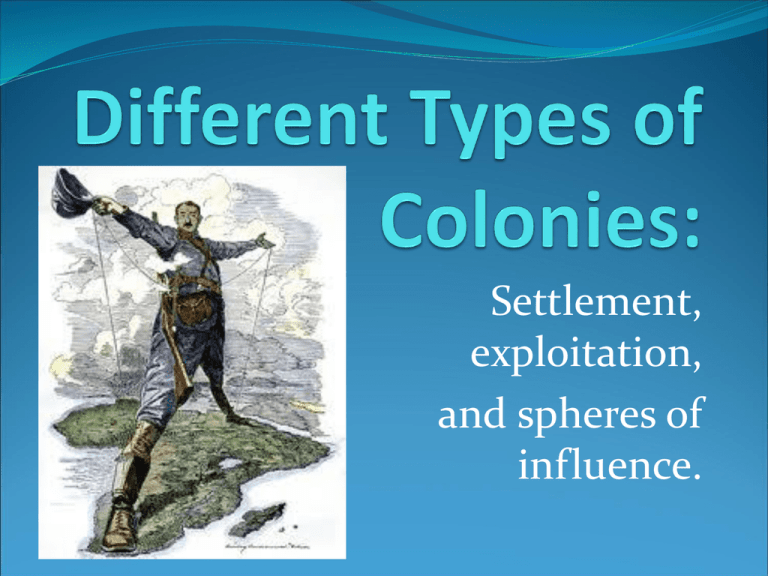
Settlement, exploitation, and spheres of influence. Review: As you saw in the DBQ, there are 3 main motives for imperialism: 1) Economic Resources, labor, new markets 2) Social Religious, ideological, to expand your culture 3) Political Military expansion, exploration, idea of ‘glory and power’ Imperialism in Action: Whatever the reason empires came to conquer, those 3 reasons led to 3 general types of colonies/influence. 1. Settlement 2. Exploitation 3. Spheres of Influence Settlement Colonies The empire tries to make the colony another version of itself. Men, women and children all emigrate to the new colony. Often in search of land and new opportunities. Examples: Canada South Africa Exploitation Colonies Usually in places that would be inhospitable to move in settlers Focused on obtaining raw or human resources Often involved using native populations as slave workers. Example: Belgian Congo “Rhodesia” Nigeria Spheres of Influence Unofficially, but effectively, controlled from the outside (Not technically colonies) Desire to keep trade and interaction open without removing local infrastructure. “Mafia” analogy Example: China Different Levels of Control: Direct Officials/soldiers from home country French Indirect Local rulers, but “Westernized” British Protectorate Like indirect- local rulers Expected to do what European advisers wanted. How could they get away with this? Maxim Machine Gun-1884 “The White Man’s Burden” by Rudyard Kipling, 1899 Take up the White Man's burden-Send forth the best ye breed-Go bind your sons to exile To serve your captives' need; To wait in heavy harness, On fluttered folk and wild-Your new-caught, sullen peoples, Half-devil and half-child. “Martyr”by David Diop, one of West Africa’s best known poets The White Man killed my father, My father was proud. The White Man seduced my mother, My mother was beautiful. The White Man burnt my brother beneath the noonday sun. My brother was strong. His hands red with black blood The White Man turned to me: And in the Conqueror’s voice said, “Boy! A chair, a napkin, a drink.”
